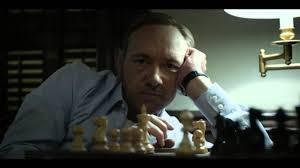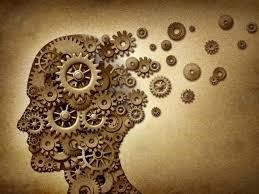Assistant Principal - Pastoral Care

Imagination – Our Most Powerful Tool?
“I am enough of an artist to draw freely upon my imagination. Imagination is more important than knowledge. Knowledge is limited. Imagination encircles the world.” - Albert Einstein
Those of you who are devotees of House of Cards may remember Frank Underwood, the chief villain in the series, declaring “Imagination is its own form of courage”. When I heard this line, it gave me cause to reflect and consider what he, and the writers meant. It sent me on a journey to consider how our imagination is one of our most powerful tools at our disposal.
Imagination has been given a bad rap in our Western culture for a long time. Many tend to associate imagination with childhood and thus childishness or derisively dismiss it as the realm purely of artistic types. Rational, logical thought and realism has been privileged over the airy-fairy world of imagination. Yet if we are to fully exploit the incredible potential of our brains than the harnessing and utilisation of our imagination is critical to growth and development as learners and as fully developed human beings.
Perhaps one of the reasons for the decline in empathy in our society is due to the decline in imagination. Being empathetic requires us to put ourselves in other people’s shoes. Interestingly, the more affluent a society and individuals become the more insulated we become from disadvantage and therefore less likely to care about others. Research shows that poorer people give more of their money to charity than wealthy. To become more generous, compassionate and understanding we need to use our imagination. We need to imagine what it is like to be of another gender or race or religion or from disadvantage – economic or physical. By not engaging our imagination it becomes easy to ignore the plight of others.
Imagination is a tool that enables us to examine problems from new perspectives. All of creativity and innovation depends on people using their imagination. It is by using imagination that you go from the unknown to the known. It is here that you test and extrapolate ideas. Imagination is where you visualise a process and step it through to its conclusion. It helps us anticipate problems and then devise strategies to overcome them. Imagination is the power to make something come into reality, to go from the abstract to the concrete. Problem solving requires both logical/analytical thinking as well as imaginative thinking. Below is an extract from a writer who explains the technical aspects of this process within our brain.
How Does Imagination Really Work: The Sub-Conscious Connection
“Our subconscious minds have no sense of humour, play no jokes and cannot tell the difference between reality and an imagined thought or image. What we continually think about eventually will manifest in our lives. ” - Robert Collier
Imagination originates in the thinking brain, also called the new brain or the neocortex. But as your thoughts and imagined outcomes get infused with the power of your emotions and vivid images, they have a chance to filter into your limbic brain or the sub-conscious.
The limbic brain can process a lot more information when compared to the conscious brain and is also responsible for all our habits and emotions. As your imagination becomes visceral, your naturally intelligent sub-conscious pushes for physical and mental changes that align you in the direction of the fulfillment of that desire.
This does not mean that things will just automatically happen but what it means is that you are getting the rider and the elephant on board and will experience less resistance and excuses to take inspired action.
The rider and the elephant metaphor of Jonathan Haidt, the author of the book, The Happiness Hypothesis gives us a good understanding of how the system works. The rider is the conscious, thinking and imagining brain and the elephant is the sub-conscious automatic and unconscious limbic brain.
The rider cannot train or control the elephant by force alone. However, silencing the mind through meditation and entering into a deep state of relaxation makes the sub-conscious more amenable to autosuggestion or proclaiming something is true for you and feels natural to you.
This state of silence is a fertile ground for your imagination to replace existing beliefs and “memes” with something of your own choosing. As the new belief takes hold and becomes a visceral feeling in your sub-conscious, you will be inspired to act and behave in new ways to fulfill that end.”
http://launchyourgenius.com/2014/01/26/7-steps-unleashing-imagination/
As individuals, imagination helps us to see our own way forward in life. It is by harnessing imagination that we begin to envision a plan of action. It is when we begin to imagine new possibilities that we become excited and motivated to pursue a goal. Our destiny begins with imagining. By projecting yourself into the future your mind begins to construct ways forward and thus builds motivation. Many successful sports men and women utilise visualisation to drive their success. They practice seeing in their minds their performance before they compete. The more they visualise the more likely they are to make it come to fruition. This is a potent example of the power of imagination to shape and direct our efforts.
In this link, Sir Ken Robinson, an important educationalist, outlines why imagination is so important to us as learners: https://www.youtube.com/watch?v=9QQ_h5lHOBk
Frank Underwood is born into “dirt-poor” poverty and yet rises to be President of the United States. He is an exemplar of how powerful imagination can be to achieving what others feel is impossible. Frank uses his imagination to set challenging goals – he envisions himself as the President. He then uses his imagination to anticipate problems and how others will respond and thus constructs plans to overcome these hurdles. His imagination knows no bounds, unfortunately this means he ignores all moral and ethical boundaries in his relentless pursuit to achieve his imagined goal. Even when he has been stymied and feels at a loss, it is his imagination that he turns to in an effort to reverse his fortunes.
While Frank Underwood is a loathsome character, his masterful use of imagination is something that we can admire and learn from – providing we have the courage.
Mr Mick Larkin - Assistant Principal - Pastoral Care



